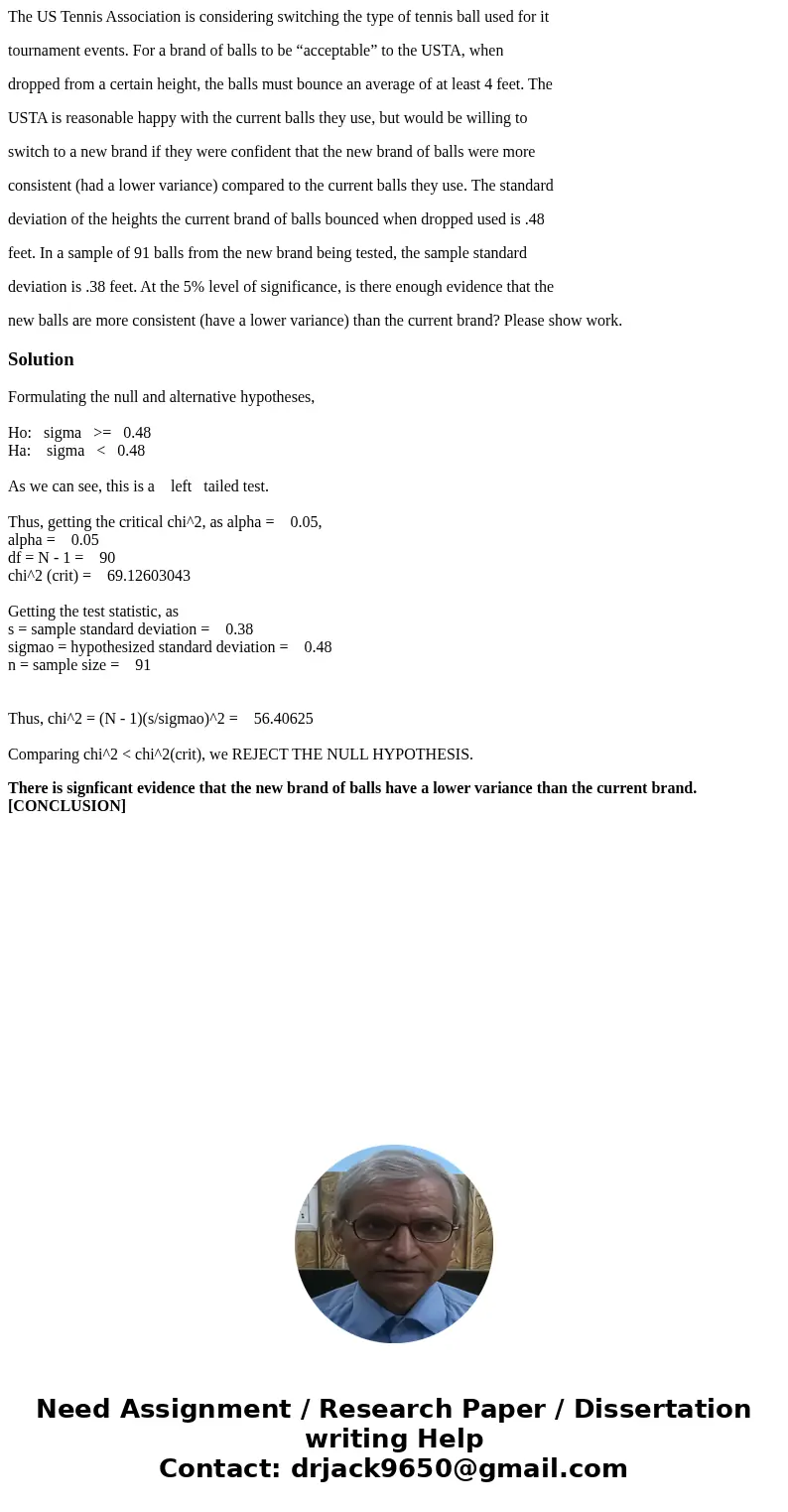The US Tennis Association is considering switching the type
The US Tennis Association is considering switching the type of tennis ball used for it
tournament events. For a brand of balls to be “acceptable” to the USTA, when
dropped from a certain height, the balls must bounce an average of at least 4 feet. The
USTA is reasonable happy with the current balls they use, but would be willing to
switch to a new brand if they were confident that the new brand of balls were more
consistent (had a lower variance) compared to the current balls they use. The standard
deviation of the heights the current brand of balls bounced when dropped used is .48
feet. In a sample of 91 balls from the new brand being tested, the sample standard
deviation is .38 feet. At the 5% level of significance, is there enough evidence that the
new balls are more consistent (have a lower variance) than the current brand? Please show work.
Solution
Formulating the null and alternative hypotheses,
Ho: sigma >= 0.48
Ha: sigma < 0.48
As we can see, this is a left tailed test.
Thus, getting the critical chi^2, as alpha = 0.05,
alpha = 0.05
df = N - 1 = 90
chi^2 (crit) = 69.12603043
Getting the test statistic, as
s = sample standard deviation = 0.38
sigmao = hypothesized standard deviation = 0.48
n = sample size = 91
Thus, chi^2 = (N - 1)(s/sigmao)^2 = 56.40625
Comparing chi^2 < chi^2(crit), we REJECT THE NULL HYPOTHESIS.
There is signficant evidence that the new brand of balls have a lower variance than the current brand. [CONCLUSION]

 Homework Sourse
Homework Sourse